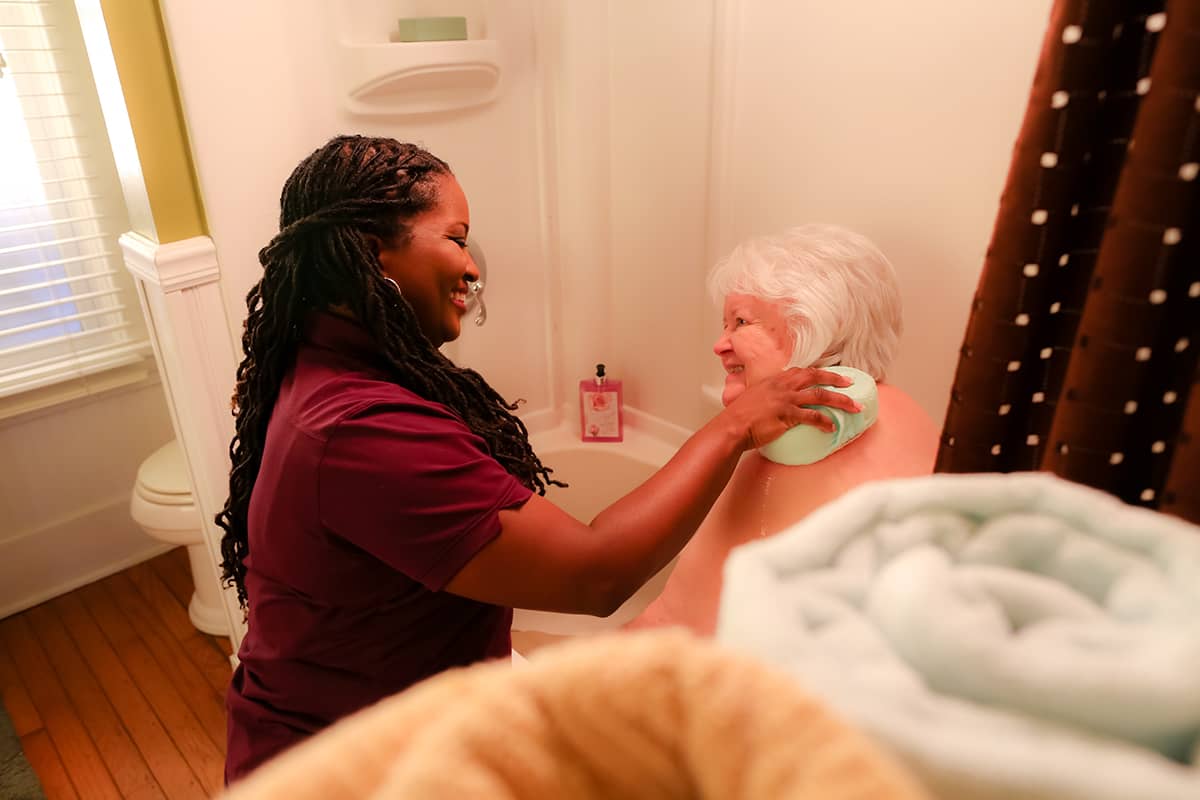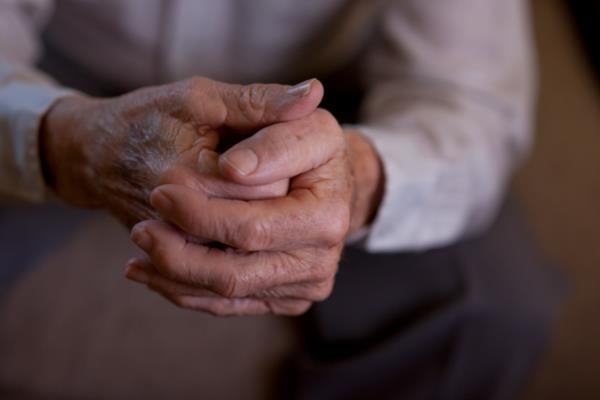Odour – it’s a touchy subject, especially when it comes to the scents that may be associated with humans and the aging process. Some have asked the question: “Do older people really smell different?”
As it turns out, a significant amount of research has been done on the subject with mixed conclusions.
What You Need to Know About Nonenal
Sometimes when visiting senior care facility or an older adult’s home, you may notice a musty, grassy, or greasy odour. While some have inaccurately linked this scent with poor hygiene, scientists have another name for it: nonenal. It is a researched condition that could be connected to the aging process.
According to a study published by the Journal of Investigative Dermatology, nonenal is a chemical compound that is produced when omega-7 unsaturated fatty acids on the skin are degraded through oxidation. Around age 40 in both men and women, as the skin begins producing more fatty acids, its natural antioxidant defenses begin to deteriorate. Hormonal changes like menopause in women can contribute to this chemical process as well.
Not Everyone Agrees
In a New York Times column, essayist Ann Bauer discovered disagreement among researchers about this issue. Bauer noted that in 2001, Japanese researchers first discovered this unsaturated aldehyde called 2-nonenal that is more concentrated on the skin of older people.
The Japanese study was confirmed by Johan Lundstrom, who used study samples from the underarms of people from the ages of 20 to 95, and presented them to 41 participants who ranked them on intensity and unpleasantness. Dr. Lundstrom and his co-authors found that “participants were able to correctly assign age labels to body odours originating from old-age donors, but not to body odours originating from other age groups.”
But George Preti, a 74-year-old analytical organic chemist, says his studies did not match the results found by either the Japanese group or Dr. Lundstrom’s team. Dr. Preti’s team used upper back and forearm samples and submitted them to gas chromatography and mass spectrometry, concluding that “no method of analysis” revealed the presence of 2-nonenal in older subjects.
“Old people actually smell less than younger ones,” Dr. Preti said. “Unless you go to a nursing home, where there are hygiene issues in the mix, you’re not going to find this musty, unpleasant odour everyone is talking about.”
The scientists do agree that people with chronic diseases are more likely to give off odour no matter what their age, according to Bauer. Dr. Preti attributed this more to diet, metabolism, and self-care. Dr. Lundstrom credited the possibility — which he is in the process of investigating — that ongoing inflammation leads to odorous cell decay.
Tips to Keep Things Fresh
Regardless of what causes scents around older adults and their homes, experts do agree that there are ways to keep aging adults and their houses smelling fresh.
- Keep fresh air flowing through the house
Open windows periodically to let clean air in. Good ventilation can help prevent stale air from hanging around a house. - Clean the house
Check the home for spoiled or expired food and ensure bedding is regularly washed. Wash clothing after each wearing and air out shoes. Use these tips to keep a senior’s house clean and address hoarding if that’s an issue. - Practice good bodily and dental hygiene
Floss and brush teeth, gums, and tongue daily, and follow guidelines for proper denture care. Make sure that bathing is happening several times a week. Encourage sponge baths on those days when a full shower isn’t scheduled. - Hydrate
Drinking plenty of water can help cleanse the body of odor. - Refresh and repack old items
Old clothing and paper can carry a musty smell. Wash clothing, then store between dryer sheets. Put dried lavender in breathable cotton or linen bags and add them to storage containers. Set an open box of baking soda on closet floors or hang a bag of cedar chips in closets.
It may be difficult for some older adults to follow the healthy routines mentioned above if they are dealing with illness or other issues. Know the signs that an aging adult may need more help around the house.
In-Home Care for Chronic Conditions
Living with a chronic health condition can feel overwhelming. Home Instead skilled Care Professionals relieve the burden with person-centered care tailored to individual needs.




